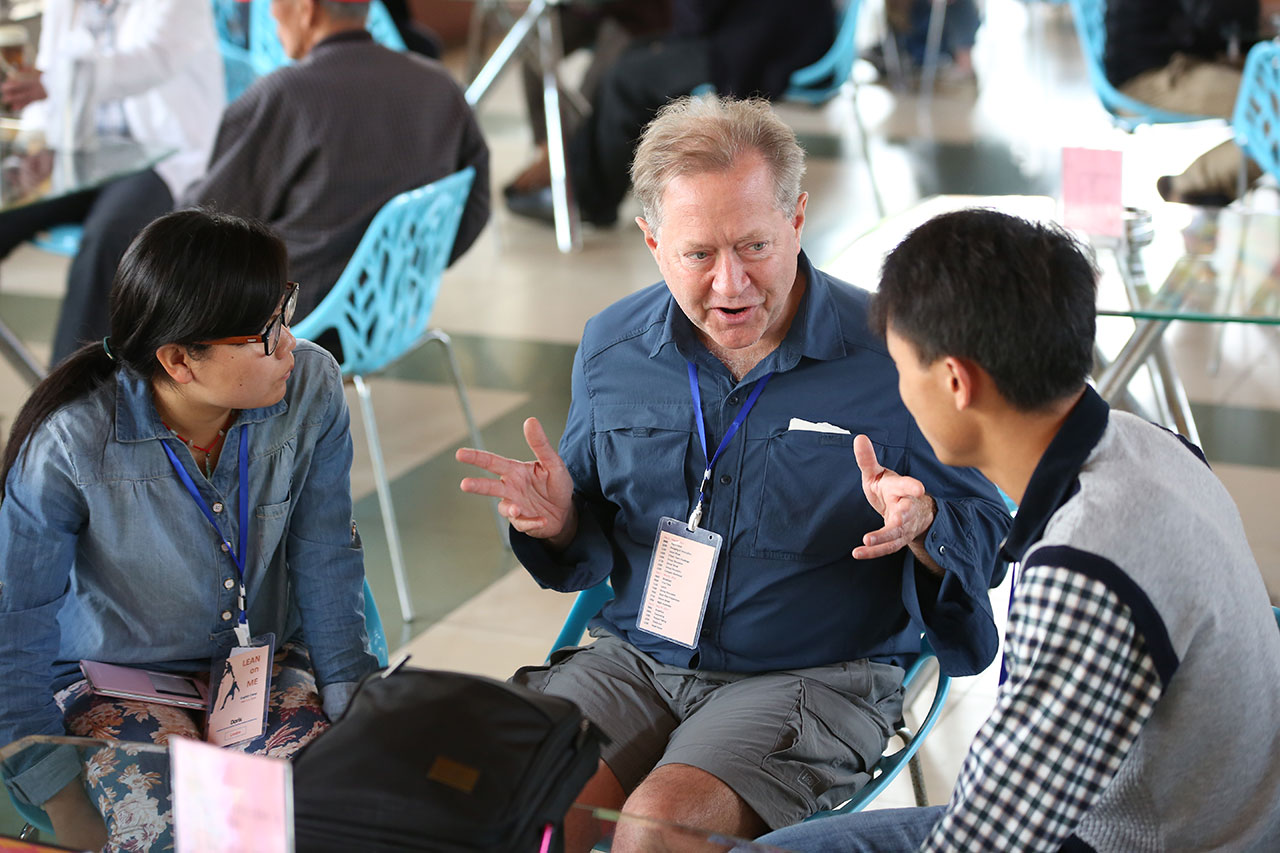This article was originally posted on ChinaSource.
My pixelated screen obscured the deep emotion on her face. Our Skype video was blurry and her voice cut in and out of my earbuds. But even with the poor internet connection, I heard the remorseful quiver amidst her sentences. I thought I even recognized tears glistening at the corner of her eyes.
“If this persecution truly comes,” she said, “I cannot bear the fact that we might not see you again.”
Liu Zhenmei spoke Chinese, lovingly articulating her care for my wife and I. After all, we had spent over a decade with her—traveling to the rural countrysides of Southwest China, sharing meals in narrow side streets, and preaching the Gospel message to unreached ethnic tribes at the ends of the earth.
“What if we won’t be able to minister together again?” she questioned. “After all that we have been through, how can our team operate without you?”
These, of course, were rhetorical questions to which she herself knew the answer. I knew that Zhenmei was strong enough to continue the call of ministering in the final frontier of the unreached world. She knew this too. She also knew that our team of local trailblazers was God-ordained to take the Gospel to places it had not gone before. After all, every single one of our local missionaries had been jailed, beaten and interrogated for their faith.
Everything hinges upon relationship
Our connection with our local missions team had been built upon the sturdy foundation of genuine friendship. Relationship with one another was the bedrock of Within Reach Global’s core values. Come what may, I was sure that these tried-and-true Chinese Christians would continue to seek the heart of God and share His love with unreached people groups.
But with the recent introduction of religious laws regarding NGOs, the tide was shifting and we felt it. Emerging urban churches in our city were undergoing government scrutiny and a handful of foreign workers had been expelled from the country. Liu Zhenmei reluctantly requested that for the time being, we discontinue WeChat conversations with our local team. But the weight of her request felt particularly poignant at present, and the pixelated Skype video screen could not camouflage her sentiment.
“Zhenmei,” I began, “no matter what happens, we will always be with you. If persecution comes and we are unable to connect with you, we will always love you. We are more than just a team, we are a family.”
The birthing of a local missions team
For the past fifteen years, my wife and I raised up a small team of passionate Chinese church planters. At the outset, we were the ones discipling them, raising them up in their Christian faith, and teaching them the ropes of reaching unreached people groups. But the story was mostly of us stumbling through the missions endeavor together as a team. We dreamt up relevant ways of sharing the message of the cross with communities who had never heard of Jesus before; we sought to contextualize our methods to the people we were reaching without sacrificing the heart of the Christian message.
And so we went to the farthest regions of China’s borders with our local missions team, preaching to the world’s forgotten tribes, sleeping on the elevated slats of bamboo huts, eating the most inconceivable of local delicacies, then suffering the consequences of our curious cuisine as Mao’s Revenge struck at the most inconvenient times and locations.
In spite of occasional cultural botches and blunders, we began to see the fruit of our sacrifices among ethnic tribes. Year after year, we opened more outreach centers—Gospel hubs in the heart of unreached regions. The journey was filled with excitement and imbued with joy. Regardless of what difficulties arose, our indigenous Chinese missions team rejoiced with us in the mini-revivals we experienced together.
The subtle sense of the loss in the missionary heart
For years we had considered what true indigenous ministry should look like. Though there are variants in every missions narrative, the goal, in my opinion, remains the same, simply stated: the cross-cultural foreign minister is called to work himself out of a job. It is a dying to self, an empowering of local leaders, a releasing of homegrown ministry methods, a letting go of ministry reigns, a passing of the baton to the next generation.
But this is no small task and often strikes at the core of the missionary identity.
In our case at Within Reach Global, I perceive the steady maturation of indigenous style ministry a budding success. But with this fond sentiment also surfaces a subtle sense of loss. What is my new role? Am I still of value? Will all that I have sought to build last the storms to come? The missionary mind has a tendency to play tricks on itself. Unfortunately, I am all too prone to this kind of inner dialogue.
Greater things than these
But pause for a moment. Consider phrases like “China’s rapid Christian growth” and “revival in the midst of persecution”. Inevitably, God reminds us of the Cultural Revolution, prompting us to see His masterful hand in the midst of a China devoid of missionaries. Through the power of the Holy Spirit and with the oversight of none but the Father God, the Church in China burgeoned into its present magnitude through local-led, grassroots endeavors.
And as local leaders mature in their callings, it is only natural that the limelight transition from the cross-cultural worker to indigenous leadership.
Again, I suggest that the goal of the cross-cultural foreign minister is to work himself out of a job. This is the simple equation of true discipleship. Elijah raised up Elisha. Jesus empowered His disciples. Paul mentored Timothy. Each prepared for a future wherein the leader would not be present. With China’s new NGO law coming into effect, a passing of the baton to indigenous leaders is paramount.
Regardless of where you are in the missionary journey (short-term, hybrid, long-term), I encourage every cross-cultural foreign worker to ponder these questions:
- Do I view myself as expendable in the long-term process of my ministry?
- Will another minister rise in my place to spearhead missional efforts?
- Am I intentionally raising up a local Timothy to do greater things than I could obtain to?
- Am I a big part of the small thing or a small part of the big story?
- Do I truly value the opinions of the local ministers I work with?
- Am I willing to work myself out of a job?
I pray that as you ponder these questions, God might give you relevant and creative ideas how to empower local-led ministry in China.



